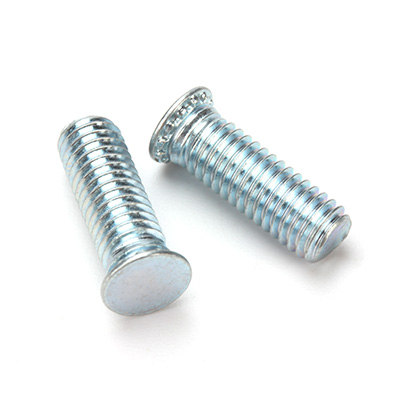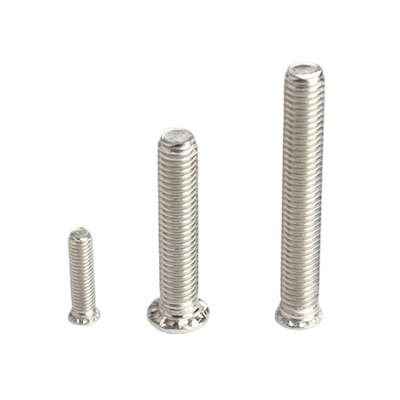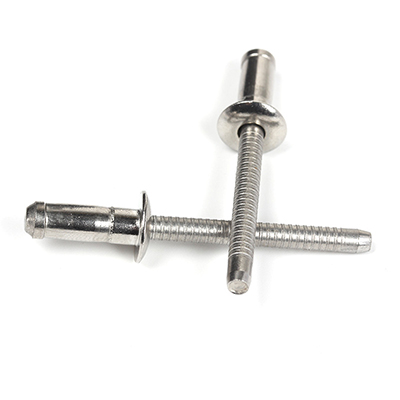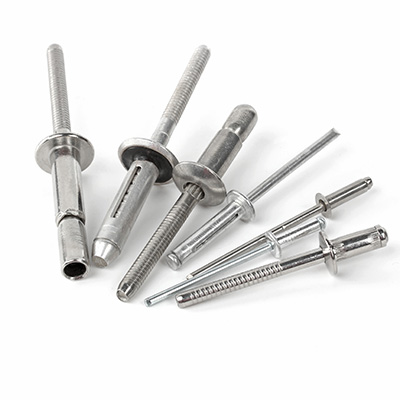
Introduction to Riveted Nuts
Riveted nuts, also known as nutserts, are essential fasteners used to create strong, permanent threads in materials where a traditional threaded fastener cannot be used. These fasteners are particularly useful in situations where access to the back of the assembly is difficult, and they are widely used across industries such as automotive, aerospace, electronics, and construction. Riveted nuts combine the reliability of a nut with the simplicity and versatility of a rivet, making them a critical solution for joining materials and enabling high-strength, long-lasting connections.
In this article, we’ll explore what riveted nuts are, the various types available, their advantages, and best practices for installation, highlighting their role in enhancing product durability and performance.
What Are Riveted Nuts?
Riveted nuts are a type of fastener that is inserted into a pre-drilled hole in a material to provide a strong threaded insert. They are commonly used in applications where access to both sides of the workpiece is limited or impractical. Riveted nuts function similarly to rivets but are designed to create internal threads, allowing for a bolt or screw to be inserted and secured from the opposite side.
The installation process involves inserting the rivet nut into the hole, then applying pressure (using a rivet tool) to expand the body of the nut, creating a tight fit and locking the nut in place. The resulting threads provide a durable fastening point for bolts, screws, or other threaded components.
Types of Riveted Nuts
-
Open-End Riveted Nuts: These rivets have an open end, which allows for easier insertion into materials. They are ideal for applications where the fastener will be exposed to stresses from only one side of the material. Open-end riveted nuts are commonly used in sheet metal applications and for securing automotive and aerospace components.
-
Closed-End Riveted Nuts: Closed-end rivets have a sealed end, providing a more secure, leak-proof fastening option. They are used in applications that require airtight or watertight seals, making them perfect for industries like automotive and construction where environmental protection is crucial.
-
Flanged Riveted Nuts: Flanged rivet nuts have a wide flange at the top, which helps distribute the load over a larger surface area. This type of rivet is ideal for softer materials or when a more substantial bearing surface is needed to prevent material deformation under stress.
-
Heavy-Duty Riveted Nuts: These are designed for applications that require high tensile strength. Made from durable materials like stainless steel or carbon steel, they are used in high-stress environments, such as in aerospace, automotive, and heavy machinery applications.
-
Serrated Riveted Nuts: Serrated nuts feature a series of grooves or teeth on the outer surface that grip the material more effectively. These provide an anti-slip feature, ensuring a strong, non-rotating installation even under heavy vibration conditions.
Advantages of Riveted Nuts
-
Strong, Permanent Threads: Riveted nuts provide a durable and reliable threading solution for materials that cannot accommodate traditional threads. The permanent threads ensure a tight, long-lasting connection that can withstand heavy use and stress.
-
Ease of Installation: Riveted nuts are easy to install with a rivet tool, requiring minimal labor. The process can be done quickly and efficiently, even in areas with limited access, reducing installation time and costs.
-
No Need for Backside Access: One of the key benefits of riveted nuts is that they can be installed in areas where access to both sides of the material is impossible or impractical. This makes them ideal for assembling parts in tight spaces, such as in electronics, automotive, and aerospace applications.
-
Wide Range of Materials: Riveted nuts can be made from various materials, including stainless steel, aluminum, and brass, to suit different environmental conditions and requirements. This flexibility ensures that riveted nuts can be used in a wide range of applications.
-
Vibration Resistance: The design of riveted nuts ensures they hold up well under vibrations and dynamic loads. This makes them particularly valuable in industries where equipment is subject to continuous movement or mechanical stress, such as in automotive, aerospace, and industrial machinery.
-
Corrosion Resistance: Riveted nuts made from corrosion-resistant materials such as stainless steel provide long-term durability, even in harsh environmental conditions like marine or outdoor applications.
Applications of Riveted Nuts
-
Automotive Industry: In the automotive industry, riveted nuts are used to secure components like panels, brackets, and structural supports. Their ability to create strong, durable threads without the need for backside access makes them ideal for areas like engine compartments, body panels, and frame construction.
-
Aerospace: Riveted nuts are commonly used in aerospace applications to fasten components that must endure extreme conditions, such as high stress and vibration. They are used to secure parts in aircraft frames, interior systems, and electronic assemblies.
-
Electronics: In electronics manufacturing, riveted nuts are used to provide a secure, stable mounting point for components such as circuit boards and connectors. Their compact size and ease of installation make them suitable for a wide range of electronic devices and enclosures.
-
Construction: Riveted nuts are used in construction applications for fastening metal panels, structural components, and other elements in buildings and infrastructure. Their ability to provide secure, permanent threading makes them ideal for both interior and exterior applications.
-
Industrial Machinery: Riveted nuts are also used in the assembly of industrial machinery and equipment, where a secure, high-strength connection is required. These nuts are used to attach components, fasten machine parts, and ensure the overall stability of machinery.
Best Practices for Installing Riveted Nuts
-
Proper Hole Size: To ensure the riveted nut fits securely, make sure the hole size is correct. If the hole is too large, the rivet may not hold, and if it’s too small, it may be difficult to insert the rivet.
-
Use the Right Rivet Tool: A proper rivet tool is essential for achieving a successful installation. Using the right tool ensures that the rivet nut is expanded correctly and securely locked into place.
-
Choose the Right Material: The material of the riveted nut should be chosen based on the application. For high-stress environments, opt for heavy-duty rivets made from stainless steel or carbon steel. For lighter applications, aluminum riveted nuts may be sufficient.
-
Check for Full Expansion: When installing a riveted nut, ensure that the tool has fully expanded the nut body. A partial expansion may lead to a weak connection and potential failure over time.
-
Inspect Regularly: Like all fasteners, riveted nuts should be periodically checked to ensure they remain secure, particularly in high-vibration or high-stress applications.
Conclusion
Riveted nuts are an invaluable fastening solution, offering strong, permanent threaded connections in applications where traditional fastening methods are impractical. Their versatility, ease of installation, and ability to perform well under stress and vibration make them ideal for industries such as automotive, aerospace, electronics, and construction. By choosing the right type of riveted nut and following best installation practices, you can ensure your assemblies are secure, reliable, and long-lasting.





